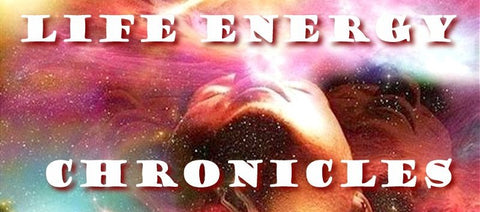
 I still see that bumper sticker around: "Practice random acts of kindness." And every time I see it, it makes me feel good. Lately scientific research on human behavior has revealed why. Did you know that even simply witnessing an act of kindness creates endorphins in the brain? Biosciences are starting to conclude that humans are hard-wired to experience pleasure from kindness, gratitude and appreciation. So much so, that even the act of watching someone do something nice for someone else is enough to stimulate de-stressing biochemicals in the brain.
I still see that bumper sticker around: "Practice random acts of kindness." And every time I see it, it makes me feel good. Lately scientific research on human behavior has revealed why. Did you know that even simply witnessing an act of kindness creates endorphins in the brain? Biosciences are starting to conclude that humans are hard-wired to experience pleasure from kindness, gratitude and appreciation. So much so, that even the act of watching someone do something nice for someone else is enough to stimulate de-stressing biochemicals in the brain.
In fact, the HeartMath Institute in California has been studying this phenomena for many years, leading to ground-breaking conclusions about the human mind-body predictament we all experience. In reports published by the Institute, they demonstrate how by self-inducing appreciative feelings, such as gratitude, kindness, and compassion, a powerful cascade of brain chemicals is stimulated, leading to increased well-being and creativity.
"Appreciation is one of the most powerful core feelings of all. Applied sincerely and consistently, it quickly performs an attitude adjustment and shift in perceptions, improving your mind, health and quality of life. Appreciation is a liberating energy, magnetizing creative solutions within and around you. You'll learn to realign sentimentality and low-grade-anxiety into a coherent heart state of appreciation; forgive and appreciate yourself; cultivate resilience; and generate appreciation anytime. With your new understanding of appreciation and sincere practice at engaging the power of the heart, you can make great strides toward living a less stressful and more enjoyable life."
-- HeartMath Institute Report
After consciously and specifically feeling gratitude and appreciation on a regular basis, I've concluded that this emotional state must be the most basic, natural state of the human experience. The body relaxes, the breath gets deeper, there is a permeating sensation of relief and fulfillment. It starts out very subtley, but with practice and frequency, the body quickly begins to amplify the effect as if to say, "Yes, yes, give me more of that!"
 One question that usually comes up is, "What if I don't have anything to be thankful for?" Besides being a victim statement, it's really not the point. In fact, this is not about questions--it's just about feeling. Gratitude is one of the easiest of feelings to create in yourself, and can be done without needing a "reason." If you need a reason in order to feel gratitude, look no further than your beating heart, your breath, your vision, your hearing, your consciousness--all of these can be "reasons" to be grateful.
One question that usually comes up is, "What if I don't have anything to be thankful for?" Besides being a victim statement, it's really not the point. In fact, this is not about questions--it's just about feeling. Gratitude is one of the easiest of feelings to create in yourself, and can be done without needing a "reason." If you need a reason in order to feel gratitude, look no further than your beating heart, your breath, your vision, your hearing, your consciousness--all of these can be "reasons" to be grateful.
I have Alanis Morrisette's song, "Thank You" in rotation on my IPod. It came up on random shuffle yesterday, and was perfect timing to show me a whole other, deeper application of the skill of gratitude...
How bout how good it feels to finally forgive you
How bout grieving it all one at a time
Thank you terror
Thank you disillusionment
Thank you frailty
Thank you consequence
Thank you, thank you silence
Although the context in this song is more about grieving the loss of a loved one, it points to the power of gratitude to heal grief. But it also turned me on to a method of honing my gratitude skill: feeling gratefulness during difficult experiences and feelings.
Just as we challenge ourselves in order to improve, the skill of feeling gratitude works the same way. In fact, try this when you're feeling angry, impatient, sad, bored, or grieving. You'll find this skill has a powerful transcending action to it, putting the more "negative" emotions or experiences into the perspective of the Big Picture.
From anger humor returns, from boredom interest returns, and from grieving beautiful poignancy returns. The skill of gratitude returns the True Self to you--it normalizes everything, so you can feel the true reality of what is going on. That's why I've concluded that gratitude and appreciation are fundamental feeling states of the human experience. All other states arise from this one state.
Gratitude is the feeling of coherence, balance, and harmony, and by feeling that feeling, the body responds immediately--balancing hormones, cortisol, blood sugar, blood pressure, immune system functions and even pH (all of these things have been scientifically measured from feeling gratitude).
 A Deeper Gratitude Practice
A Deeper Gratitude Practice
There is a shamanic practice I like to call, "Appreciating My Situation." And it goes like this:
- Breathe deeply.
- Bring attention to your heart.
- Zoom in on the cells of your heart.
- Zoom further in on the atomic structure of those cells.
- Zoom into the vast space between each atom (95% of any object is space).
- Now feel deeply gratitude/appreciation and watch it expand through that space out to the entire Universe.
- Breathe in that gratitude.
- Notice how everything you sense is embued and radiating gratitude.
- Breathe and let go.
You'll find that the world seems to slow down, and things look more beautiful and interesting. The Vietnamese mystic Thich Nhat Hanh advised, "Drink your tea slowly and reverently, as if it is the axis on which the earth revolves--slowly, evenly, without rushing toward the future. Live the actual moment. Only this moment is life." Only in the state of gratitude can you fully experience this.
My guru once told me, "Gratitude is God feeling expressed." I've always remembered that quote, but only until now do I truly understand it.
RESOURCES:
"Using Gratitude to Resolve Negativity" by Dr. Kim D'Aramo (VIDEO)



The best way to destroy the bad effects of dissatisfaction (which some people unconsciously maintain and nurture for years), is to give thanks repeatedly several times a day, even if there is no reason for it. Giving thanks is simply like an antidote to the poison engendered by discontent.